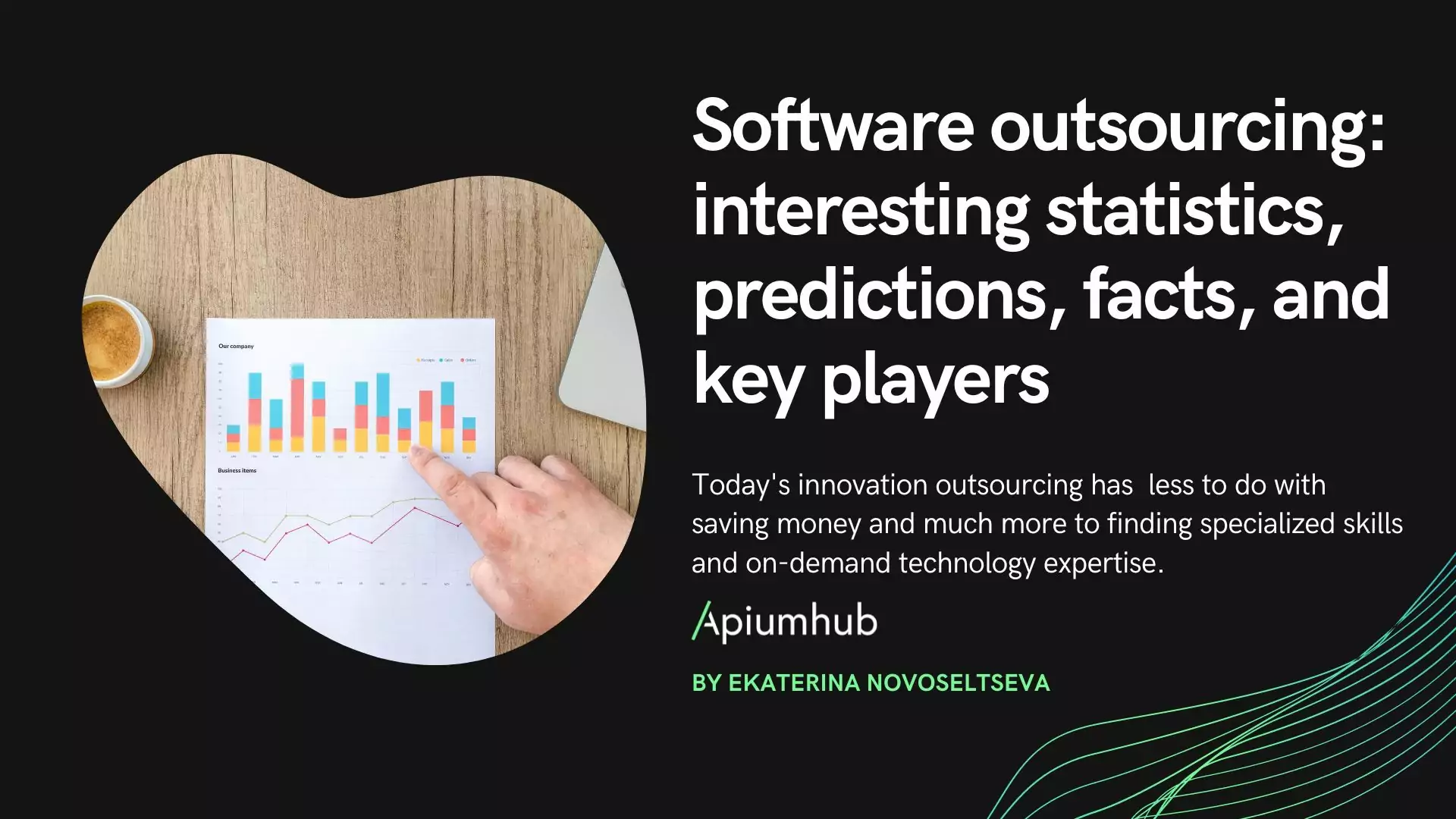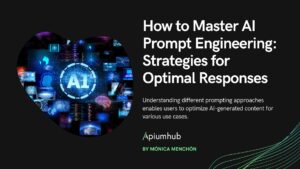Table of Contents
The hot question nowadays is how can we meet the world’s food needs, respecting the environment, taking into account that population is set to grow to over 9 billion people by 2050 and arable land decreases by 100,000 hectares per year, global agricultural production needs to double in the next 30 years to cope with demand, so answering this question is becoming more urgent and more important. Therefore I decided to write an article about AgriTech startups that make a difference in the industry. I really hope it will inspire other companies and people to think long-term and invest in the future.
But first, let’s make sure we are all on the same page. What is AgriTech? AgriTech is the use of technology in agriculture with the aim of improving yield, efficiency, and profitability. Agritech startups work on products, services or applications derived from agriculture that improve various processes.
Technology and data can open new opportunities and help solve problems with production, traceability, and the preservation of natural resources. Despite its traditional image, agriculture is adopting new technological innovations and leveraging the cloud, big data, and the Internet of Things (IoT) solutions to increase productivity while protecting our environment.
Data is at the heart of this technique. IoT, satellite and drone imagery, weather data and historical yield data can be brought together to inform and speed up the decision-making process that will make farming more efficient. For example, it can optimize the use of pesticides or fertilizers based on the data gathered.
According to a new market intelligence report by BIS Research, the global smart farming market is expected to reach $23.14 billion by 2022, rising at a compound annual growth rate (CAGR) of 19.3% from 2017 to 2022.
Agri-food technology gives entrepreneurs the opportunity to improve an important industry that has a far-reaching impact across the world. These improvements include but are not limited to the following:
- Drones
- Satellite photography and sensors
- IoT-based sensor networks
- Phase tracking
- Weather forecasts
- Automated irrigation
- Light and heat control
- Intelligent software analysis for pest and disease prediction, soil management and other involved analytical tasks
- Biotech
- Livestock maintenance technology
- Research and development equipment
- Manufacturing innovation
- Food processing tools
- Marketing and distribution
- Regulation and food quality
- Retail and food services
- Finances
- Software solutions
Let’s look at some of the initiatives that already make a difference.
AgriTech innovations
Mobile project in Nigeria
There is a Nigeria’s digital agriculture platform which focused on connecting farm sponsors with real farmers in order to increase food production while promoting youth participation in agriculture. Farmers and sponsors all receive a percentage of the profits on harvest. The platform also makes provision for insurance cover for all existing farm projects, so that in the event of unforeseen circumstances, the sponsors’ capital can be refunded.
Drones used for scanning
Drones are used on Crop field for scanning with compact multispectral imaging sensors, GPS map creation through onboard cameras, heavy payload transportation, and livestock monitoring with thermal-imaging camera-equipped drones.
Sensing technology for better management
High-income countries have seen recent improvements in their agricultural management systems through modern remote sensing technology, such as satellites and aircraft and the information they collect. Out of the vast amount of data collected, advice is provided to farmers and fishers to help inform their decisions. This has led to better crop yields, higher quality produce and more sustainable agricultural practices in some cases.
IoT
The agricultural industry is dependent upon soil type, soil quality and the weather. Agri-tech entrepreneurs have developed an innovative IoT based software, that can track weather conditions and provide accurate information about the quality and type of soil. This software is changing lives for the better in the farming industry.
Big data for food supply efficiency
Big data also informs high-level decision-makers on how to better manage food supply at national and regional levels.
ICT
Information Communication Technologies like podcasts, weblogs, social media platforms, e-books are constantly helping to bridge the information gap in the Agriculture sector for farmers and Agripreneurs. In the past there was no transparency between the farmers,the food processing agencies and the consumers. Today, this transparency is essential for success. Consumers want to know as much information as possible about how the final product is reached and the agri-tech industry acts as the link between these parties. Through the use of this technology, the consumers can get details about soil health, the fertilizers used and whether the food is organically grown or not.
Hydroponics
Hydroponics is a soilless farming technology that is used to grow vegetables and tomatoes.
It guarantees an all-year-round production for farmers and insulates these crops from the effects of climate change.
Blockchain for cross-border trading
Blockchain is revolutionizing the Agriculture sector in many ways including trading commodities on the blockchain is helping to reduce middlemen interference by promoting a peer-to-peer model of connecting farmers with end users. It is also helping to promote fairer trades by removing trade barriers, reducing over reliance on United States Dollars and promoting cross-border trading in local currency.
Agricultural Biotechnology
Agricultural biotechnology helps in the development of synthetic fertilizers, pesticides and genetically modified seeds, which leads to an increase in the production of food. The industry continues to find new solutions for farming and the growth of plants. Agricultural biotechnology also helps in the development of innovative foods. Examples of this includes food products with more protein or other specific nutritional requirements of the population.
Novel Farming System
Entrepreneurs in the agri-tech industry are developing innovative ways to carry out farming. This includes less natural resources like land and soil. The examples of these may include indoor farms, vertical farming and growing fresh products in high tech greenhouses among others.
Logistics technologies
Nowadays, consumers want to know how the food they purchase is kept fresh while in transit. As a solution for this, AgriTech entrepreneurs have developed various technologies and sensors. These include food testing devices, food freshness sensors and shelf life enhancement technology to name a few.
Bio-Energy and Bio-materials
AgriTech is not only used for food. It also contributes to the development of bio-energy and bio materials.
Farm robotics
The use of machines revolutionized the field of agriculture in recent years. Now with the introduction of farm robotics, agricultural technology has been taken to a whole new level. The machinery used on farms will be operated using smart technology and the artificial intelligence of robots. This will significantly increase the speed of the work completed on the farms compared to the manual processes of yesteryear.
Trading Market Places
Instead of the farmers and the suppliers meeting face to face or over the phone, there are apps and websites developed through which, the farmer and the buyer can buy and sell products. The farmers are able to purchase seeds and other products online and also sell their own produce through the Internet.
8 AgriTech Startups that are worth following
1.Augmenta
The first one on our list of Agritech startups is Augmenta. It has built a smart, robotic system, named the “Field Analyzer”, which is designed to assist farmers to accurately fertilize and spray their fields. The system combines a piece of hardware that joins to field equipment and automates the amount and timing of field treatments. By using Augmenta’s web platform, the farmer monitors progress from a table. It claims that its technology can improve crop yields by up to 12%, enhance crop quality by up to 20% and reduce fertilizer use by 15%.
2. Root AI
The second on our list of Agritech startups is Root AI – a research company, developing artificial intelligence and robotics to support the indoor farming sector. The company is working on a harvesting robot, Virgo, for controlled climates, like greenhouse and glasshouse farm operations. Root AI’s Virgo is designed to be dexterous and harvest the same way a person does. To date, the company’s bot has learned how to pick tomatoes, but Root AI’s founder asserts that the hardware can be used for a variety of crops.
3. Taranis
The third one on our list of Agritech startups is Taranis, which has developed an analytics engine that analyzes the field data related to crop production cycle and weather and suggests perfect time and locations to deploy agrochemicals. It predicts and alerts about weather calamities like hailstorm / drought, disease outbreak, and also suggests on irrigation deployment by analyzing field levels and historical rainfall data.
4. Prospera
Prospera technologies provides computer vision technology solutions for farmers that continuously monitor and analyze plant health, plant development and stress in plants. Its technology captures visual and climatic data from the field and provides actionable insights to the farmers through mobile or web. It provides both hardware and software for the execution of technology for which it uses sensor based mechanism for capturing data and has many agronomists and experts of agriculture business for the interpretation of captured data.
5. CropX
CropX has developed a rechargeable wireless sensor solution for soil moisture monitoring. The sensors are deployed in irrigation fields and communicate real-time soil moisture level and temperature. Web platform and mobile application analyzes the sensor data & automatically generates irrigation maps and water requirement.
6. SeeTree
SeeTree develops and offers a machine learning based data-driven solutions for orchard growers. It enables the users to identify the weak trees, tree clusters, and the health status of trees using artificial intelligence, machine learning, IoT multi-sensor data, and drone imaging technologies. The core system is based on geospatial and object recognition algorithms and trained to identify, measure, and organize the data from orchard trees to provide analysis for precise decision making.
7. Phytech
Phytech patented technology, based on plant sensors enables user to receive and share a constant, real time stream of data, to monitor crops and develop insights into plant conditions. Data received is analyzed at Phytech servers and actionable insight is delivered to grower.
8. Afimilk
And the last but not least on our list of Agritech startups is Afimilk, which has developed multiple products to address problems across various planning and operations activity of dairy farms. The products include dairy farm management software that collects data across parameters from onfield sensors, analyzes and offers pre-created solution sets, milking parlor automation systems, cow monitoring systems, etc.
As can be seen, AgriTech is a fast growing industry that is showing no signs of slowing down any time soon. As long as it keeps improving traditional forms of agriculture and farming, while continuously transforming food production with its innovative technology, Agritech startups are expected to expand for years to come.
If you are interested in knowing more about Agritech startups, I highly recommend you to subscribe to our monthly newsletter.
Author
-
Ekaterina Novoseltseva is an experienced CMO and Board Director. Professor in prestigious Business Schools in Barcelona. Teaching about digital business design. Right now Ekaterina is a CMO at Apiumhub - software development hub based in Barcelona and organiser of Global Software Architecture Summit. Ekaterina is proud of having done software projects for companies like Tous, Inditex, Mango, Etnia, Adidas and many others. Ekaterina was taking active part in the Apiumhub office opening in Paseo de Gracia and in helping companies like Bitpanda open their tech hubs in Barcelona.
View all posts









